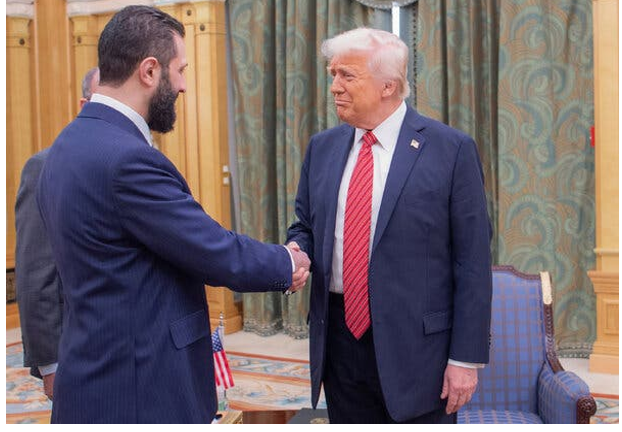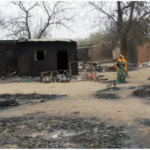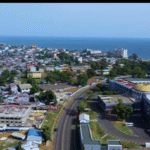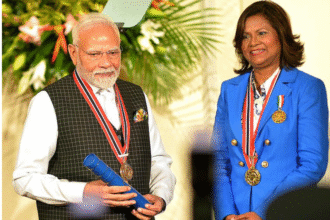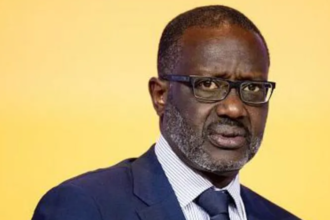By Mohamed Ghani
RIYADH, Saudi Arabia – In a move signaling a dramatic shift in US foreign policy, President Donald Trump met with interim Syrian President Ahmad al-Sharaa in Riyadh on Wednesday, marking the first face-to-face encounter between leaders of the two nations in 25 years. On the sidelines of Trump’s summit with Gulf Cooperation Council (GCC) leaders, the meeting culminated in Trump ordering the cessation of sanctions against Syria, a decision lauded by Syrians as a potential turning point for their nation.
Speaking to reporters as he departed Riyadh, President Trump praised al-Sharaa, describing him as a “young, attractive guy. Tough guy. Strong past. Very strong past. Fighter.” He added, “He’s got a real shot at holding it together. He’s a real leader. He led a charge, and he’s pretty amazing.”
The meeting signifies a pivotal moment for Syria, which is navigating a new path after the abrupt departure of Bashar al-Assad from power last year. The lifted sanctions offer the nation a potential lifeline, allowing it to reintegrate into the global financial system after years of isolation.
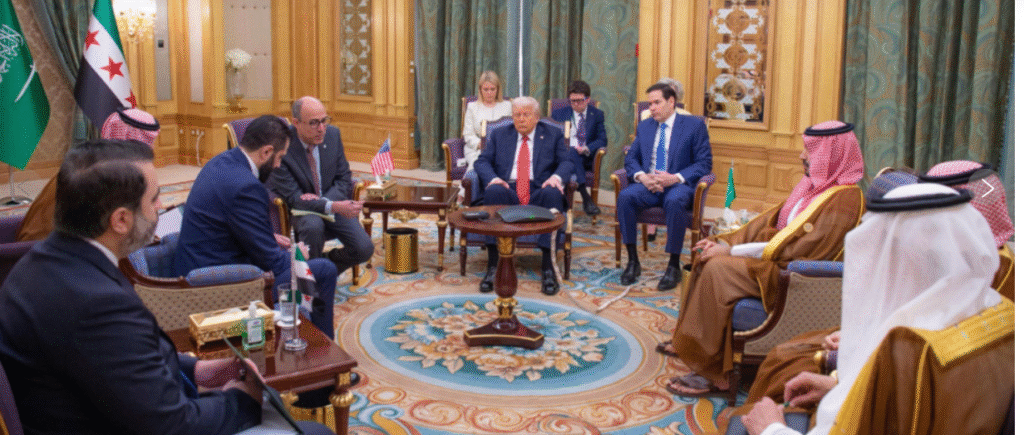
“I’m ordering the cessation of sanctions against Syria to give them a fresh start,” Trump announced to the GCC. “It gives them a chance for greatness. The sanctions were really crippling, very powerful.”
According to the Syrian Foreign Ministry, the discussions between Trump and al-Sharaa centered around potential partnerships between the US and Syria in combating groups like the so-called Islamic State (IS) group, which continue to threaten regional stability.
News of the sanction’s relief sparked jubilation across Syria. Thousands took to the streets in Damascus and other cities on Tuesday night, celebrating with fireworks and expressions of hope that the nation, long isolated from the international economy, could finally rejoin the global community.
The meeting between Trump and al-Sharaa is particularly noteworthy considering al-Sharaa’s complex past. Before the Syrian conflict erupted in 2011, the Syrian leader had connections to al-Qaeda and even fought alongside rebels against US forces in Iraq. He was even held captive by US troops for several years.
Despite this history, the meeting and subsequent lifting of sanctions signals a willingness on the part of the Trump administration to engage with Syria’s new leadership. While questions remain about the long-term implications of this shift in US policy, the event has undoubtedly opened a new chapter in the relationship between the two nations and offered a glimmer of hope for a Syria seeking a path to stability and prosperity.


